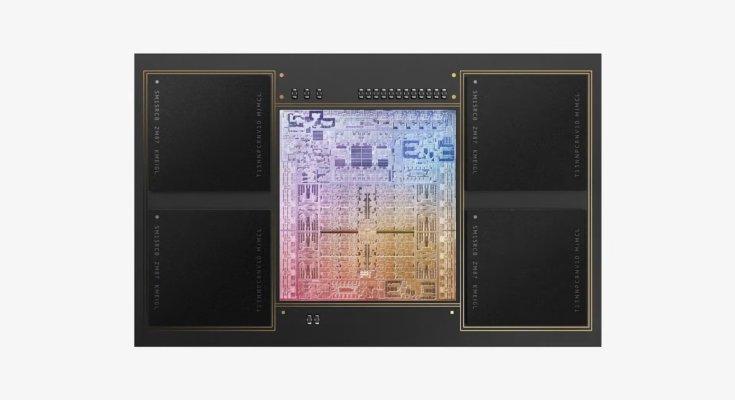Apple’s move to transition to its custom silicon from Intel has been widely praised by reviewers. The new M-series of chips deliver enhanced processing power while boosting battery life due to lower power consumption. Last year in November, Qualcomm announced its plans to rival Apple with its next-generation Arm-based SoC for the PC market. It was uncovered earlier this week that Qualcomm will release its first M1 rival for the PC by late 2023. Scroll down to read more details on the subject.
Qualcomm to Release Its Arm-based Chips in Late 2023, But Apple Might Have Introduced the M3 Chips By Then
It was recently discovered that Qualcomm will rival Apple’s M-series of chips later in 2023 (via Tom’s Hardware). The new chips will be “designed to set the performance benchmark for Windows PCs” and will be developed by the Nuvia team. According to Qualcomm, the forthcoming chips will compete directly against Apple’s M1, M1 Pro, and M1 Max and deliver enhanced performance and battery life for the PC.
During Qualcomm’s earnings call last year, the company CEO Cristian Amon stated that the Nuvia team was making progress with Arm-based processors. He further stated that the Nuvia team will focus on the performance of the chips and the laptops powered by Nuvia will be made available to users in late 2023.
It was previously heard that Qualcomm will make sample Nuvia chips available to OEMs in August of this year. Now the plan has been shifted to the second half of 2022. After the testing phase, the first Nuvia device for the customer will be made available in “late” 2023.

Nuvia was acquired by Qualcomm in January of 2021 which was a startup company founded by ex-Apple chip architects. Apple is gearing up to launch its latest M2 chip with the rumored MacBook Air and MacBook Pro models later this year. Before Qualcomm announces its rival to the M1 series of chips, Apple would have announced subsequent variants of the M2 chip. Moreover, the company might have announced its M3 chips by late 2023. Henceforth, it will be interesting to see a performance comparison between Qualcomm and Apple silicon.
This is all there is to it, folks. What are your thoughts on Qualcomm competing against Apple’s M-series of chips? Share your thoughts with us in the comments section below.



